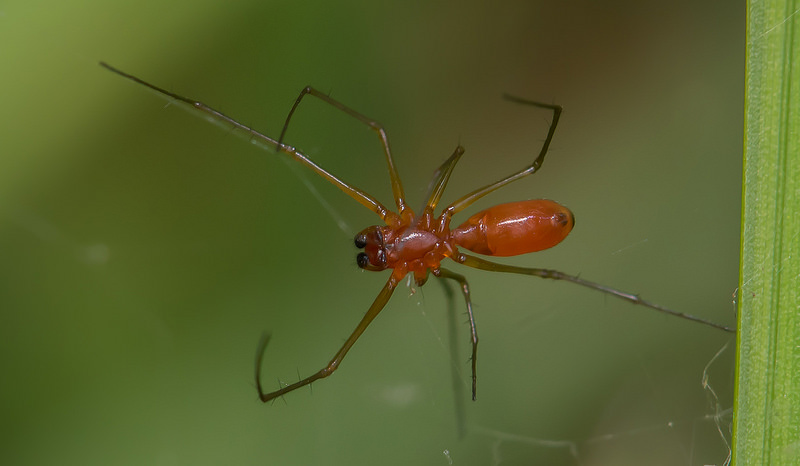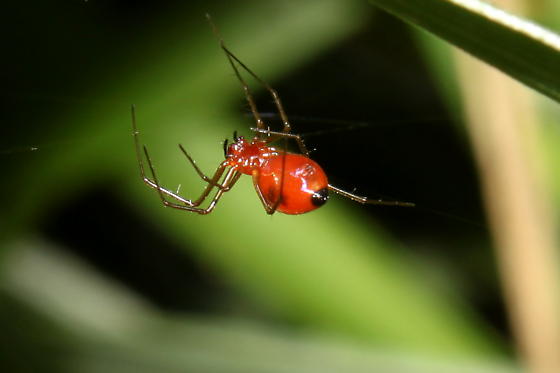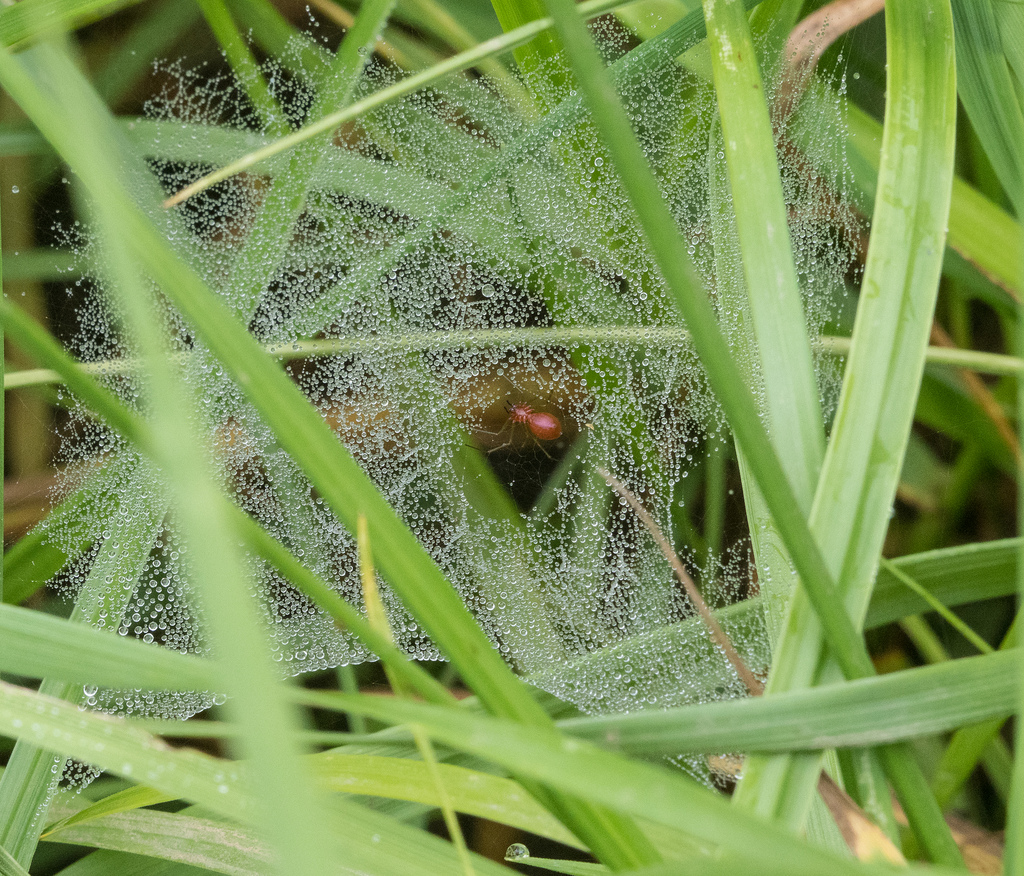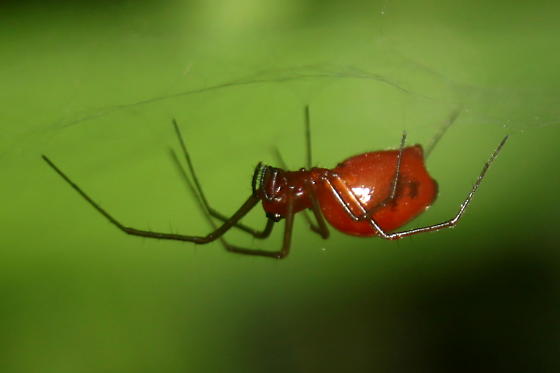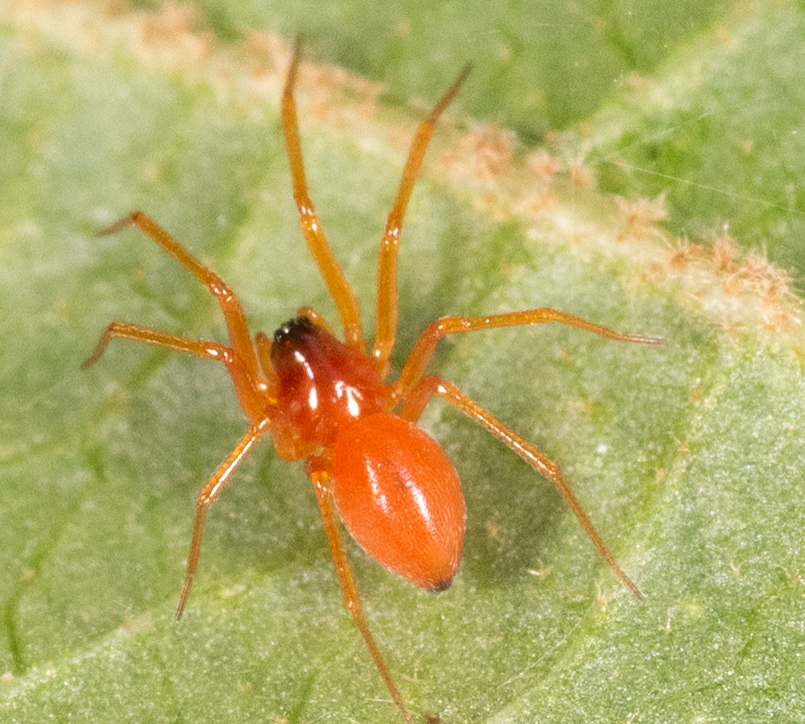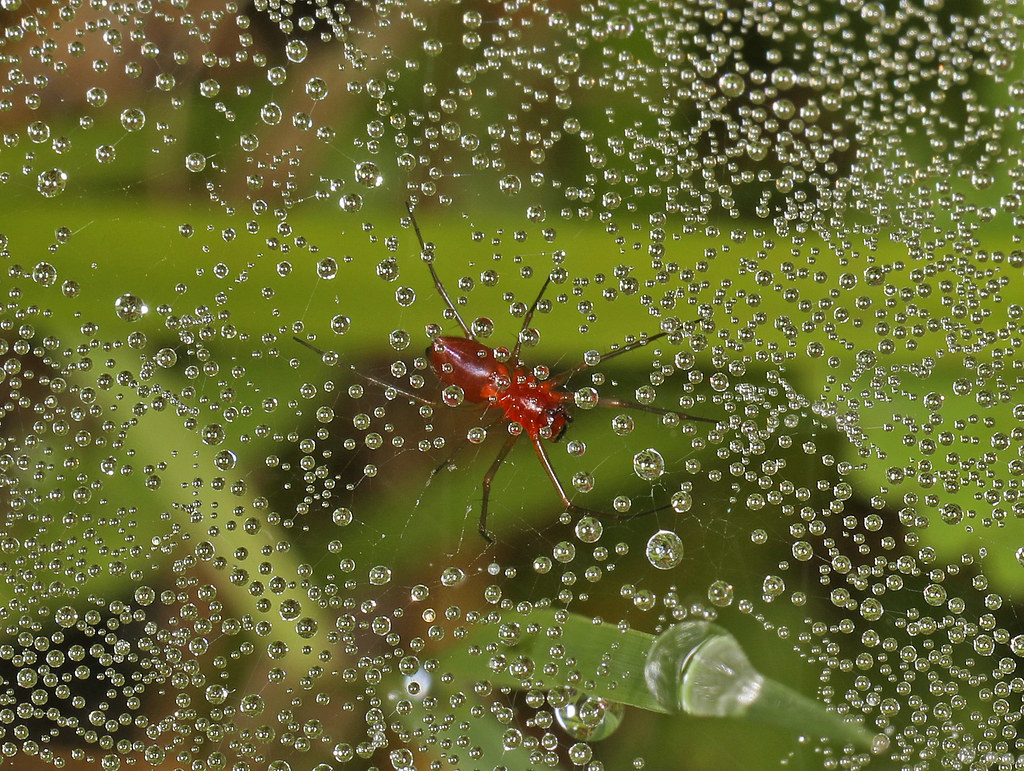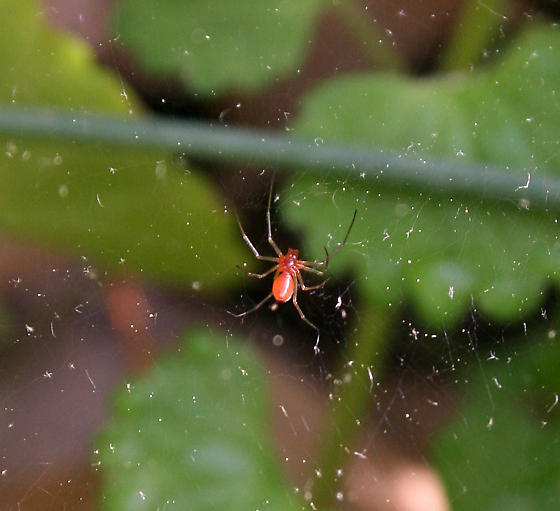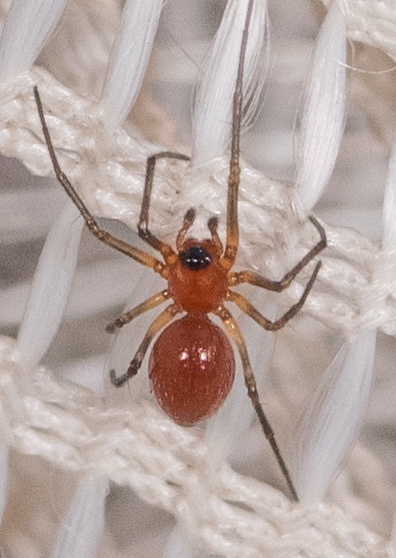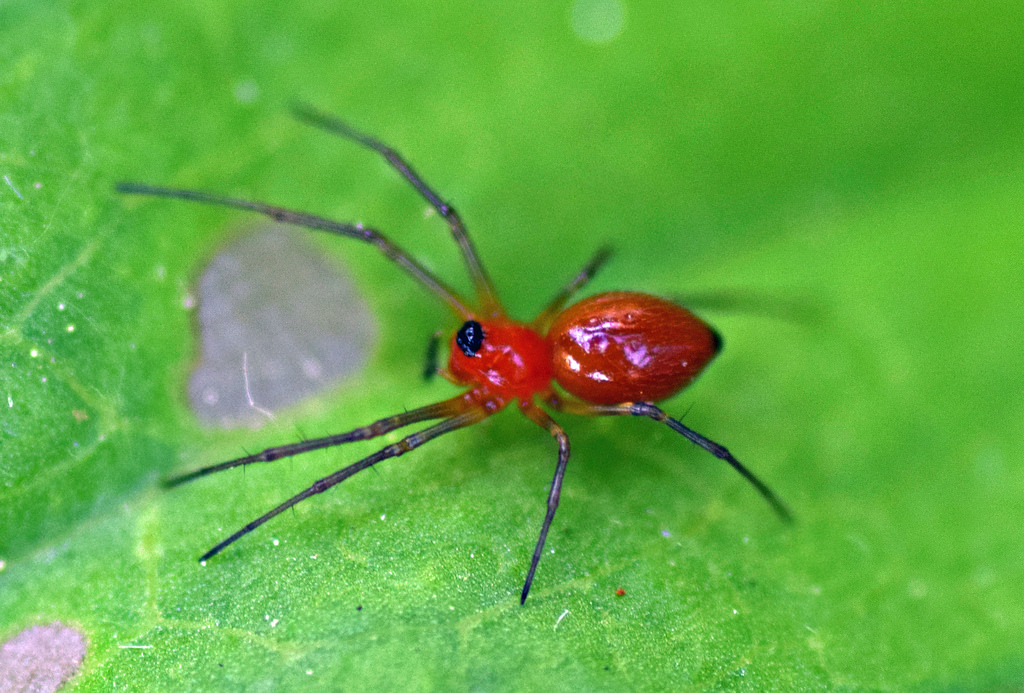Map Snapshot









14 Records
Description
"The black caudal tubercle is the key. Once you see a bright orange spider in a horizontal web with this feature, it is almost always Florinda coccinea. Ceraticelus or other orange Erigonids don't have this black caudal tubercle" (Marc Milne/BugGuide).
Seasonality Snapshot
Source: Wikipedia
| Blacktailed red sheetweaver | |
|---|---|

| |

| |
| Web of Florinda coccinea, showing stopping threads above and sheet below. | |
| Scientific classification | |
| Domain: | Eukaryota |
| Kingdom: | Animalia |
| Phylum: | Arthropoda |
| Subphylum: | Chelicerata |
| Class: | Arachnida |
| Order: | Araneae |
| Infraorder: | Araneomorphae |
| Family: | Linyphiidae |
| Genus: | Florinda O. Pickard-Cambridge, 1896[1] |
| Species: | F. coccinea
|
| Binomial name | |
| Florinda coccinea (Hentz, 1850)
| |
| Synonyms[1] | |
The blacktailed red sheetweaver (Florinda coccinea), also known as red grass spider, is a species of dwarf spider. It is the only species in the monotypic genus Florinda. It was first described by Octavius Pickard-Cambridge in 1896,[3] and has only been found in Mexico, the West Indies, and the United States.[1] It is common in the southeastern United States, inhabiting grasslands, lawns, and agricultural fields.[4]
Description
[edit]
F. coccinea are bright red in color, with a black caudal tubercle.[5] Adults typically grow to 3 to 4 millimetres (0.12 to 0.16 in) long, with females growing slightly larger than males. They have two rows of eyes; two on the top row and six procurved on the bottom.
Webs spun by F. coccinea consist of a horizontal sheet of non-sticky silk, and a tangle of stopping threads above. The stopping threads intercept flying prey and cause them to fall into the sheet below, where they are attacked by the spider.
References
[edit]- ^ a b c "Gen. Florinda O. Pickard-Cambridge, 1896". World Spider Catalog Version 20.0. Natural History Museum Bern. 2019. doi:10.24436/2. Retrieved 2019-06-14.
- ^ Gertsch, W. J.; Davis, L. I. (1946). "Report on a collection of spiders from Mexico. V.". American Museum Novitates (1313): 5.
- ^ Pickard-Cambridge, O. (1896), "Arachnida. Araneida", Biologia Centrali-Americana, Zoology
- ^ Birkhofer, K.; Scheu, S.; Wise, D.H. (2007). "Small-scale spatial pattern of web-building spiders (Araneae) in Alfalfa: Relationship to disturbance from cutting, prey availability, and intraguild interactions". Environmental Entomology. 36 (4): 801–810. doi:10.1093/ee/36.4.801. PMID 17716470.
- ^ Draney, M.L.; Buckle, D.J. (1995), "Linyphiidae", in Ubick; et al. (eds.), Spiders of North America: An Identification Manual, American Arachnological Society, pp. 1–377
External links
[edit]![]() Media related to Florinda coccinea at Wikimedia Commons
Media related to Florinda coccinea at Wikimedia Commons

